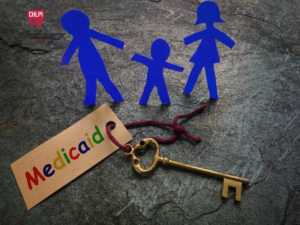Harvard research examines whether cash payments can close gaps in safety net, decrease financial stress related to pregnancy and childhood illness, and improve health outcomes
December 6, 2023 (Cambridge, MA) — Financial hardship intensifies during pregnancy and childhood for low-income families and contributes to sharp disparities in maternal and child health outcomes in the U.S. Yet, policies to address social needs during pregnancy and childhood, such as financial security, are often insufficient. New Harvard research studies are examining whether direct cash transfers for low-income families experiencing health challenges may improve caregiving, access to health care, and health outcomes.
“Prescription for Cash? Cash Support to Low-Income Families in Maternal and Pediatric Health Care Settings,” published in The Milbank Quarterly, explores health and economic vulnerability during pregnancy and childhood illness, details current policies addressing these challenges, and discusses how cash transfers in health care – exemplified by two new Harvard studies – may fill gaps in current approaches.
“There is abundant evidence that financial precarity contributes to maternal and child health disparities, yet our social safety net leaves important gaps in supporting families during this critical window,” said Margaret McConnell, Ph.D. from the Department of Global Health and Population at the Harvard T.H. Chan School of Public Health and the article’s lead author. “Our research will provide evidence about whether direct cash transfers provided during infant hospitalization can help families alleviate their economic concerns and empower them to focus on caregiving.”
Maternal, infant and child morbidity and mortality in the U.S. are consistently higher than other high-income countries. This pattern is driven by higher rates of adverse pregnancy and birth outcomes and worse child health outcomes for Black families and economically disadvantaged families. These disparities are the result of societal inequities, including structural racism and persistent child poverty, that are not adequately addressed by the social safety net.
The intense, chronic financial stress experienced by low-income families can become acute during both pregnancy and childhood illness. More than half of families experience an interruption in household employment during pregnancy and postpartum, most low-income mothers do not have paid family leave and most lose income when caring for a sick child. Among families of children facing life-threatening illness such as cancer, 1 in 4 loses >40% of their annual household income due to treatment-related work disruptions. In 2021, one-third of children under six lived in a household with income less than 200% of the federal poverty line. In 2022, the child poverty rate doubled.
Research shows that existing policies and programs designed to reallocate health spending to address social inequities that affect health outcomes are often insufficient. They are hampered by a fragmented and insufficient social safety net, substantial documentation burdens, and complex eligibility requirements and application processes. Perhaps most important, they lack the flexibility necessary to respond to complicated health and financial needs that occur in the setting of preterm birth or life-threatening childhood illness such as cancer.
Two ongoing Harvard studies – detailed in Prescription for Cash? – provide examples of how clinicians are currently testing whether temporary cash support for low-income families facing critical health challenges during pregnancy and childhood cancer can close gaps in existing programs and positively impact pregnancy and child health outcomes.
“Unlike existing programs, cash transfers require minimal engagement from overburdened families, can be delivered when they’re most needed, and allow families flexibility to spend the funds on what they most need,” said Erika Hanson, co-author of the article and Clinical Instructor for the Center for Health Law and Policy Innovation. “Cash transfers as a health care intervention hold tremendous promise, and we encourage policymakers to consider this research as they work to improve maternal and child health care policy.”
Using cash transfers to influence health outcomes would be a significant change to health care practice. This research will contribute to critical next steps including providing rigorous evidence that quantifies the impact of cash support on health outcomes and creating innovative policies that address implementation barriers.
The article was authored by:
Margaret McConnell, Ph.D., Department of Global Health and Population, Harvard T.H. Chan School of Public Health
Sumit Agarwal, M.D., M.P.H., Division of General Internal Medicine and Primary Care, Department of Medicine, Brigham and Women’s Hospital; Harvard Medical School
Erika Hanson, J.D., Center for Health Law and Policy Innovation, Harvard Law School
Erin McCrady, J.D., Center for Health Law and Policy Innovation, Harvard Law School
Margaret G. Parker, M.D., M.P.H., Child Health Equity Center, Department of Pediatrics, UMass Chan Medical School
Kira Bona, M.D., M.P.H., Harvard Medical School; Department of Pediatric Oncology, Division of Population Sciences, Dana-Farber Cancer Institute; Department of Pediatrics, Division of Hematology/Oncology, Boston Children’s Hospital


